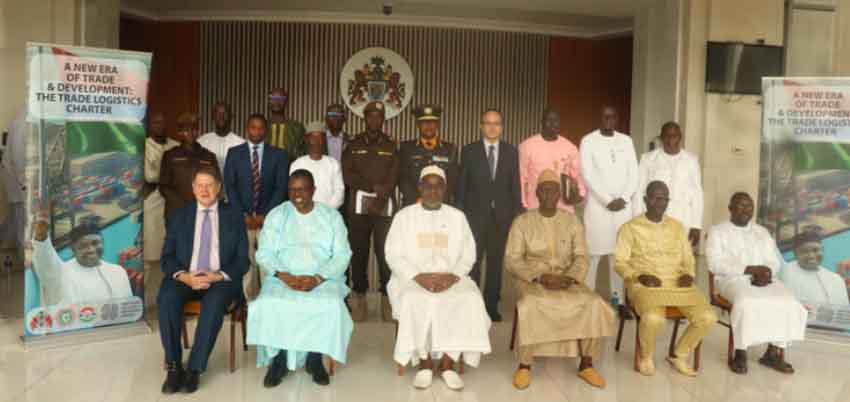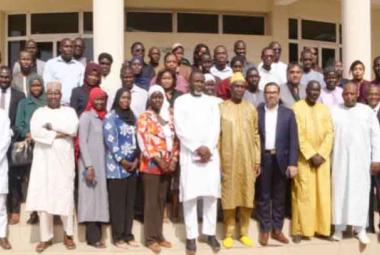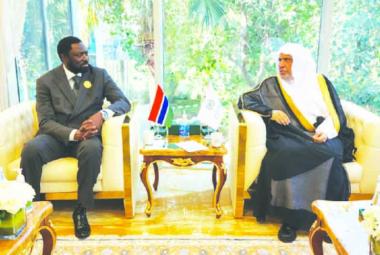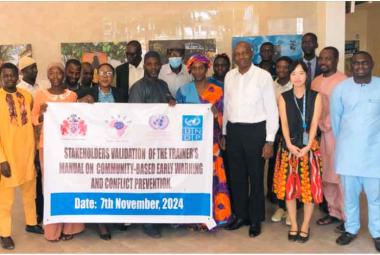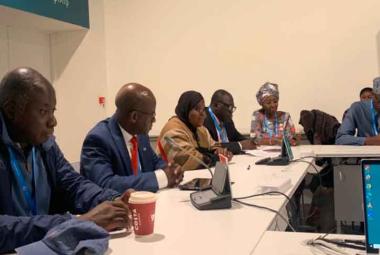By Mahzouba Maya Faal
The Vice President of The Gambia, His Excellency Mohammed B.S. Jallow, last week officially launched the Trade Logistics Charter on behalf of the President, His Excellency Adama Barrow. The event took place at the Sir Dawda Kairaba Jawara International Conference Centre in Bijilo. The event marked a significant milestone in the country’s efforts to enhance its trade and economic landscape. The Trade Logistics Charter aims to position The Gambia as a competitive player in global trade, contributing to sustained economic growth and prosperity. In his address, the Vice President described the launch as a historic step towards transforming The Gambia’s trade ecosystem. “This historic development is pleasantly a critical step towards transforming our nation’s trade ecosystem, as well as positioning us better to continue our path to economic growth and prosperity,” VP Jallow said.
He also expressed gratitude to the Tony Blair Institute for Global Change for its pivotal role in developing the Charter. “This Charter is to act as a foundation for improving the operational efficiency of our port and trade ecosystem. By the same token, it is to ensure that we jointly regain lost revenue and secure a brighter and more competitive future for The Gambia,” stated VP Jallow. The Vice President outlined key objectives of the framework, emphasising its role in streamlining customs processes, optimising the management of physical assets, and ensuring effective inter-agency coordination.
Additionally, he highlighted the government’s ambitious target of constructing over 1,200 kilometres of roads across the country as part of broader infrastructural developments. He noted that the Charter was the culmination of over a year and a half of rigorous consultations with stakeholders committed to achieving its key performance indicators (KPIs). “Importantly, the entire process met World Trade Organization standards, and a key output of this journey is an assessment of the entire trade ecosystem,” he emphasized. To ensure effective implementation, the government will establish a Trade Logistics Council tasked with overseeing the Charter’s execution, monitoring progress and reporting on its impact. The Vice President affirmed that the next steps have officially commenced, with a clear focus on delivering the outlined goals. The ceremony was graced by high-profile dignitaries, including the Honorable Minister of Trade, Industry, Regional Integration and Employment, other cabinet ministers, service chiefs, heads of departments and agencies, religious leaders, and representatives of the business community, among others.

